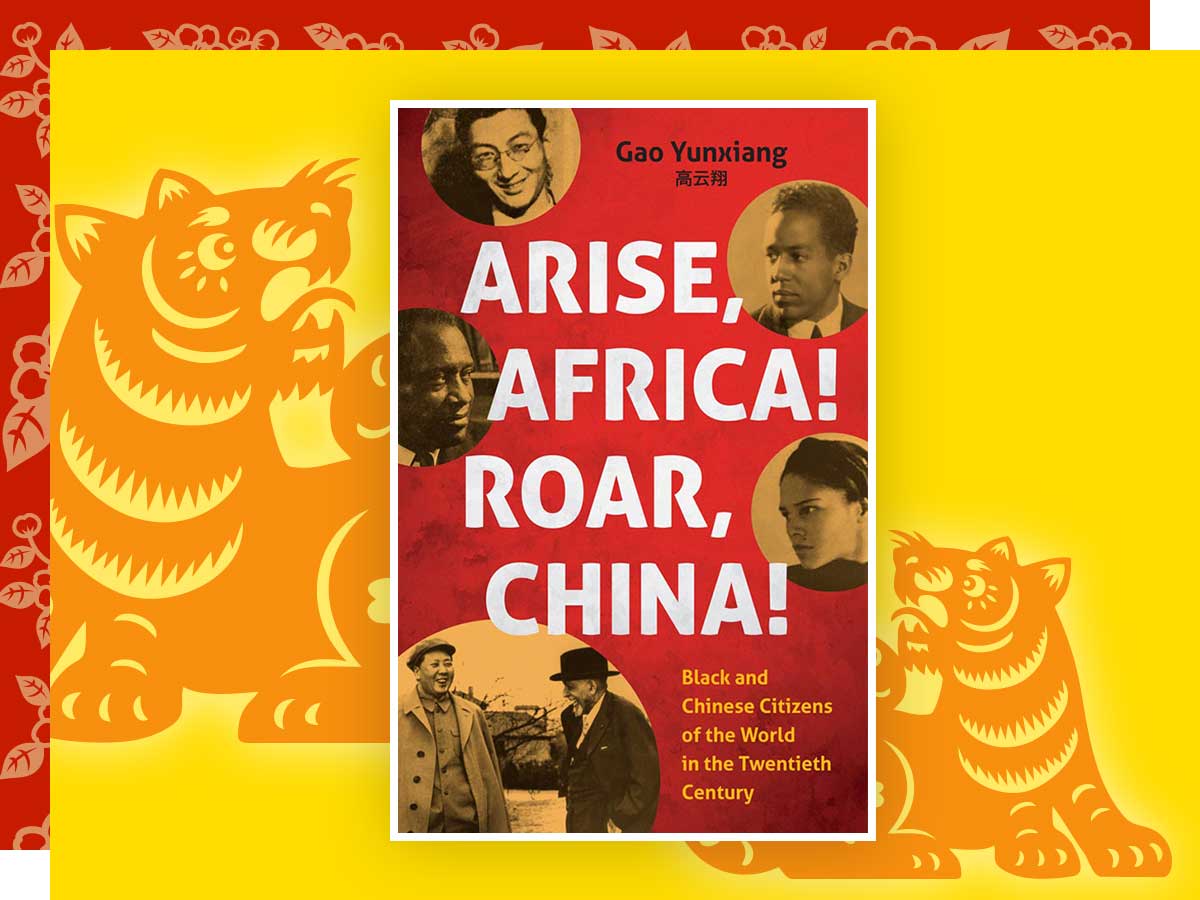Lunar New Year
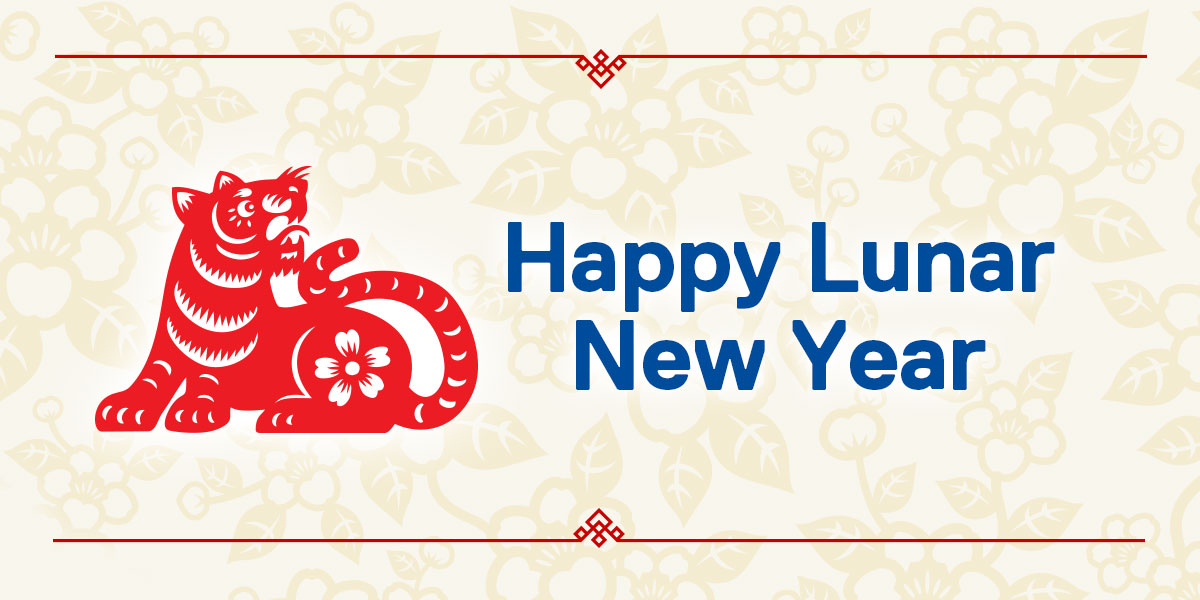
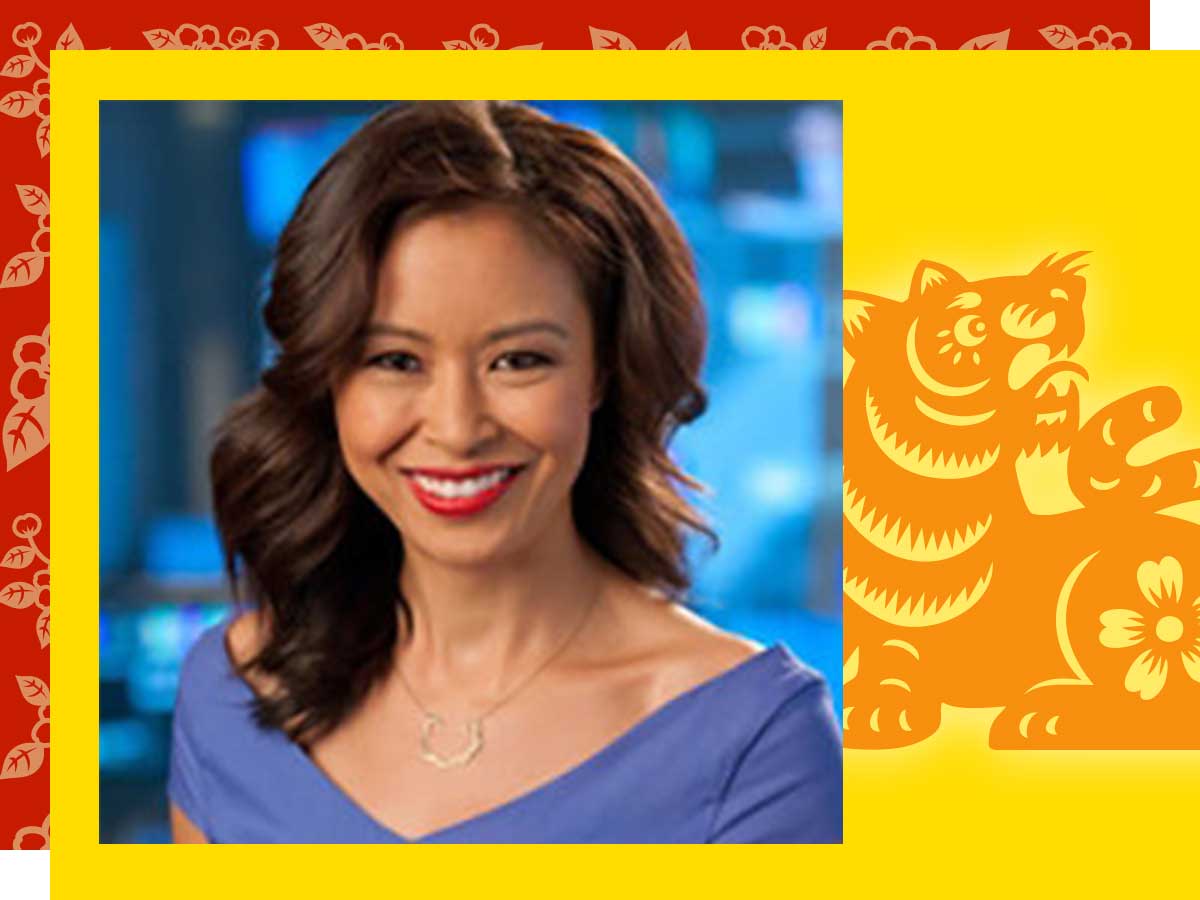
Journalism ’96
Founder & Editor-in-Chief, Forkast
As an award-winning 20+ year veteran in broadcast journalism, Angie is most recognized for her role as Bloomberg Television’s Asia anchor of First Up with Angie Lau where she’s collected 10,000+ interviews in her career, including some of the top newsmakers and business leaders in the world.
How do you describe Lunar New Year to those who aren't familiar with this cultural holiday?
It's every one of your favorite single-day holidays all rolled into one. It is a multi-day, cross-generational event where families come together every year to celebrate the hopes of the new year to come, ward off evil with lion dances, eat lucky food, and share good fortune (lucky red envelopes) with the younger people in your life. For me, it is a glorious hybrid of love, happiness, superstition, and eating... a perfect combo in my book.
How do you celebrate the Lunar New Year? Have you always celebrated it?
As a child growing up in Canada, there weren't community-wide opportunities to celebrate Lunar New Year in the way that I've experienced since living in Hong Kong and Taiwan. But I do remember my fair share of lucky red envelopes from wonderful aunties and uncles, and eating delicious meals with the family.
Now that I'm a mother, it's exciting to share this heritage with my little boy, as he dresses up in his embroidered little jacket and learns all the Chinese New Year songs. It may be a little more muted this year obviously as in years past, but one day, I hope the vibrancy of this celebration returns.
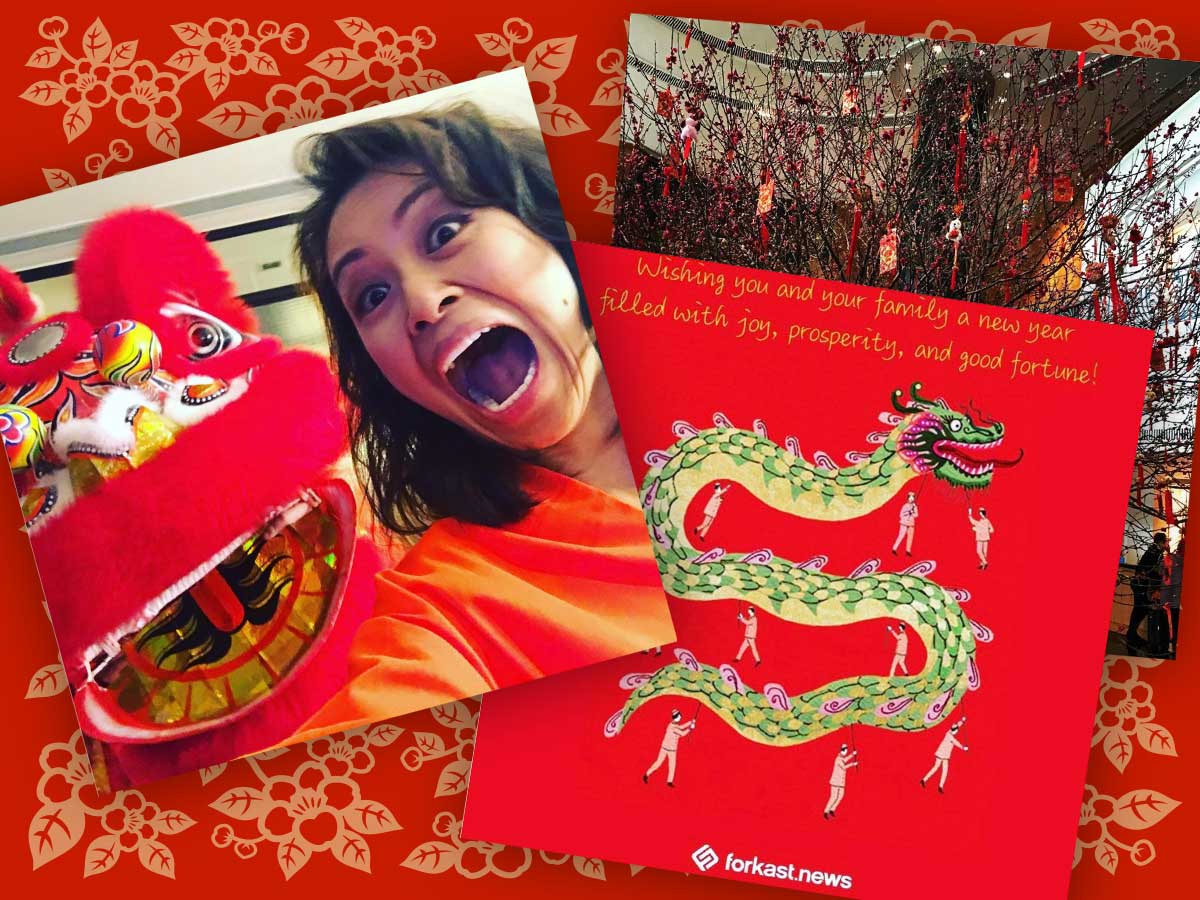
Angie shared some favorite Lunar New Year memories from her Instagram account. Credit: Angie Lau
What does this holiday mean to you?
Family.
Is there a favorite dish or food item that you look forward to each year? (Would you like to share a recipe?)
I loved it when my mother would fry up some turnip cake. Every dish served during the new year takes on special meaning. Turnip cake is a popular Cantonese dish during Chinese New Year because it sounds very similar to "good luck." The more you eat, the more luck you'll have! I found this recipe, it sums it up in one delicious post (external link, opens in new window) .
What's your favorite Lunar New Year tradition?
Lion dances!
What do you wish others knew about this holiday?
It's a beautiful meld of visual beauty and gastronomical delight.... all tied up in a lucky red bow. Gung Hay Phat Choy!
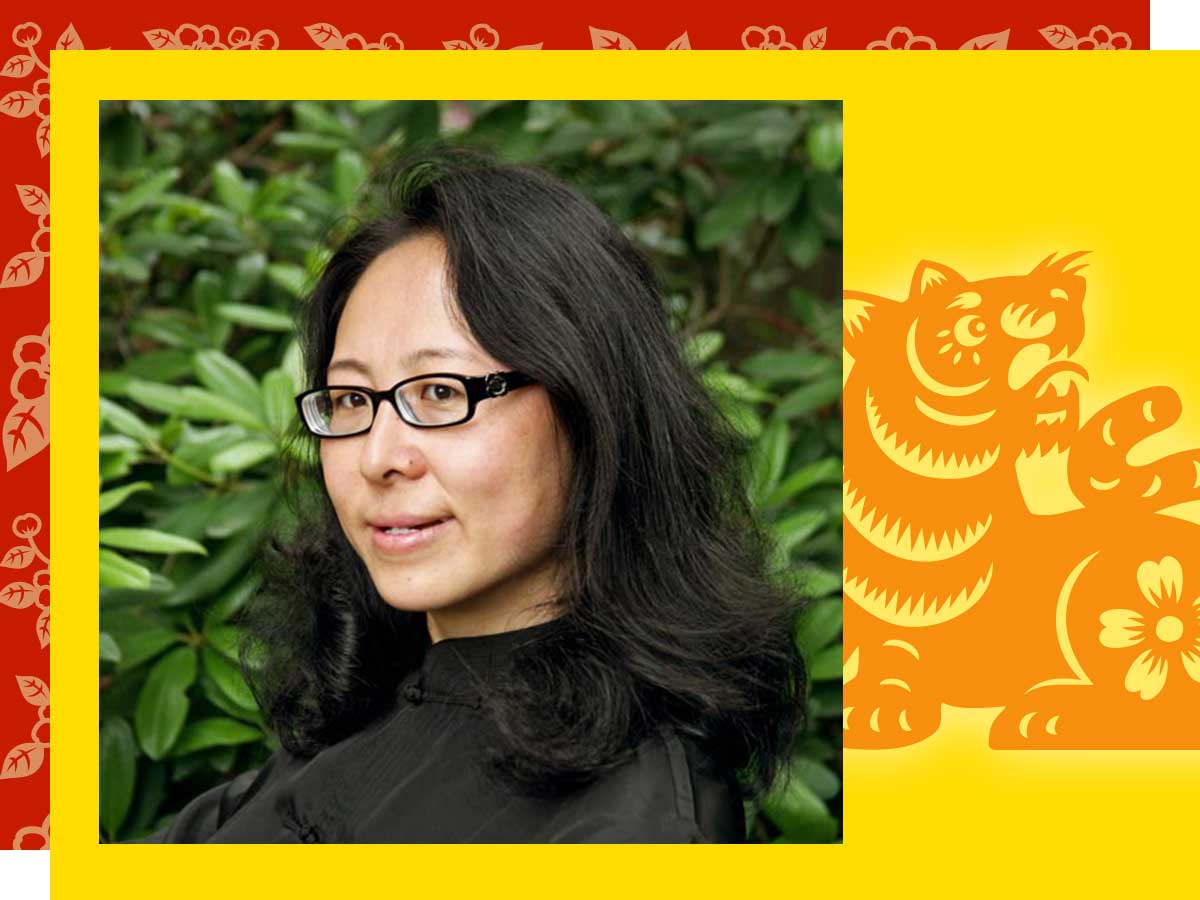
Professor, Department of History
Dr. Gao Yunxiang is a professor of history at Toronto Metropolitan University. Her research focuses primarily on trans-Pacific cultural history in the twentieth century through a multilingual approach. She has published numerous articles and two books including Arise, Africa! Roar, China!: Black and Chinese Citizens of the World in the Twentieth Century (external link, opens in new window) in December 2021.
How do you describe Lunar New Year to those who aren't familiar with this cultural holiday?
Lunar New Year is the most important holiday for Chinese and many other Asian communities, equivalent to Christmas in the West. It is a traditional ceremonial season celebrated for around two months with specific activities and tasks prescribed for particular days. December is for preparation and building up the atmosphere. Among the numerous tasks are: shopping for new clothes and other New Year goods, including but not limited to fireworks, lanterns, red paper for couplets to decorate outside walls, and posters for inside walls, cut pictures to decorate windows; thorough cleaning; and processing and preserving food. January is for leisurely fun and enjoyment. Of course, the peak is the night when the old year transitions to the new one. It is marked with the best food, new clothes and loud fireworks in every household as the New Year is welcomed along with all the spirits back to the human world. After the fireworks, everyone is one year older. Older children are allowed to spend the sleepless night roaming the neighbourhood to visit friends and neighbours. Evil spirits are sent off with loud drums and dragon boat dances/parades around January 8th or the 15th. It officially ends on February 2nd, when the legendary dragon raises its head.
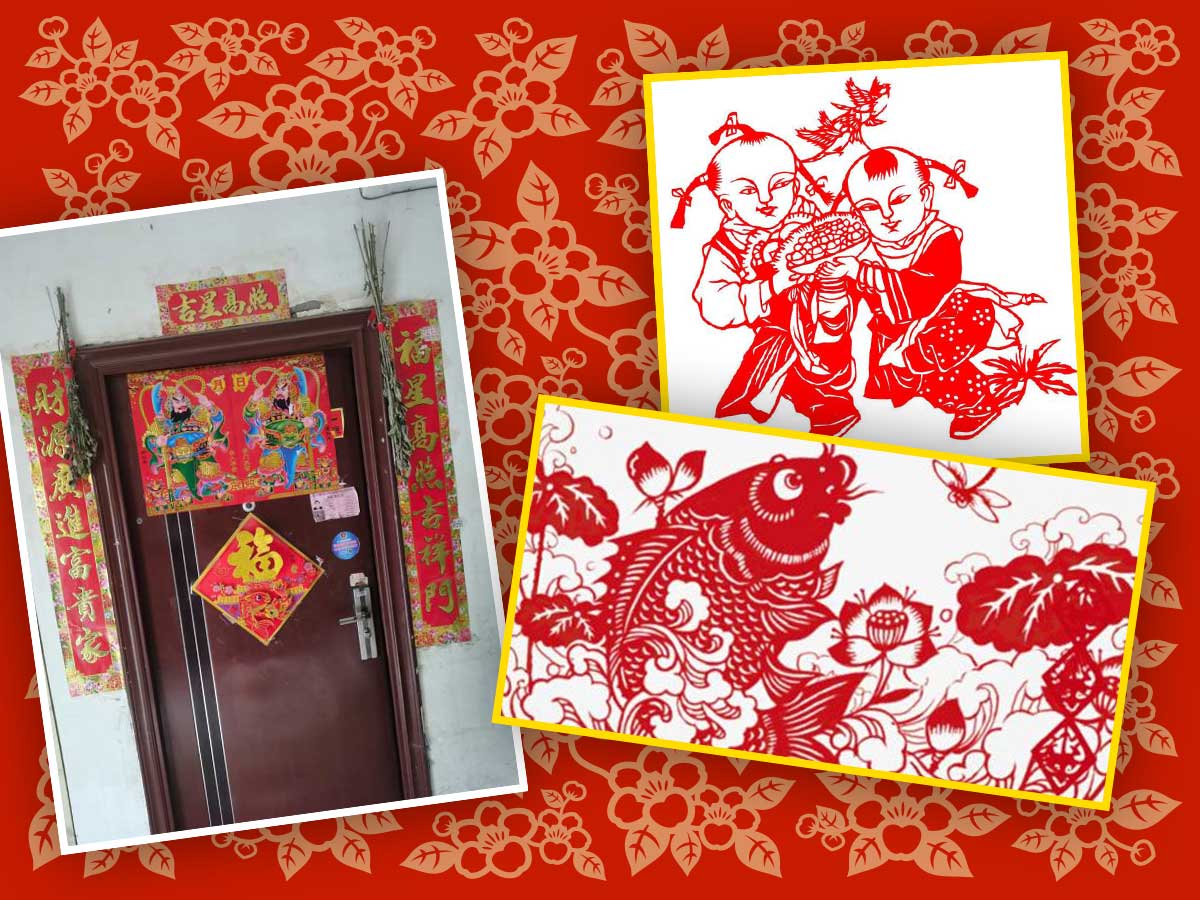
Cut pictures adorn windows and doors throughout the Lunar New Year. The pictures feature symbols of happiness and abundance for the new year. In the Chinese language, fish (pictured bottom right) has the same pronunciation as “extra, abundance.” The illustration at top right shows two children holding gold ingots or good luck coins, a symbol of prosperity and wealth. Images courtesy of Dr. Gao.
How do you celebrate the Lunar New Year? Have you always celebrated it?
I always fully celebrated the holiday season with my family when I lived in China. Like so many migrant workers and many urban residents, I would return to my hometown to celebrate the New Year with family and the local community. I do not celebrate it much anymore since I migrated to North America, due to the lack of holiday atmosphere, which involves the whole community and leisure. We do not have an official break. I often work on the Lunar New Year day. Still, my children enjoy receiving some cash in a red envelope (hongbao) to celebrate the extra year added to their age. Yet, their deepest sentiments on holidays are related to Christmas. I think that most diaspora Asians share such a transformation of their cultural experiences.
What does this holiday mean to you?
Still, the holiday is integral to my cultural background. My most intimate experiences, not only positive feelings such as fun, warmth, security, but also complicated senses such as “no banquet lasts forever,” are related to celebrating the Lunar New Year.
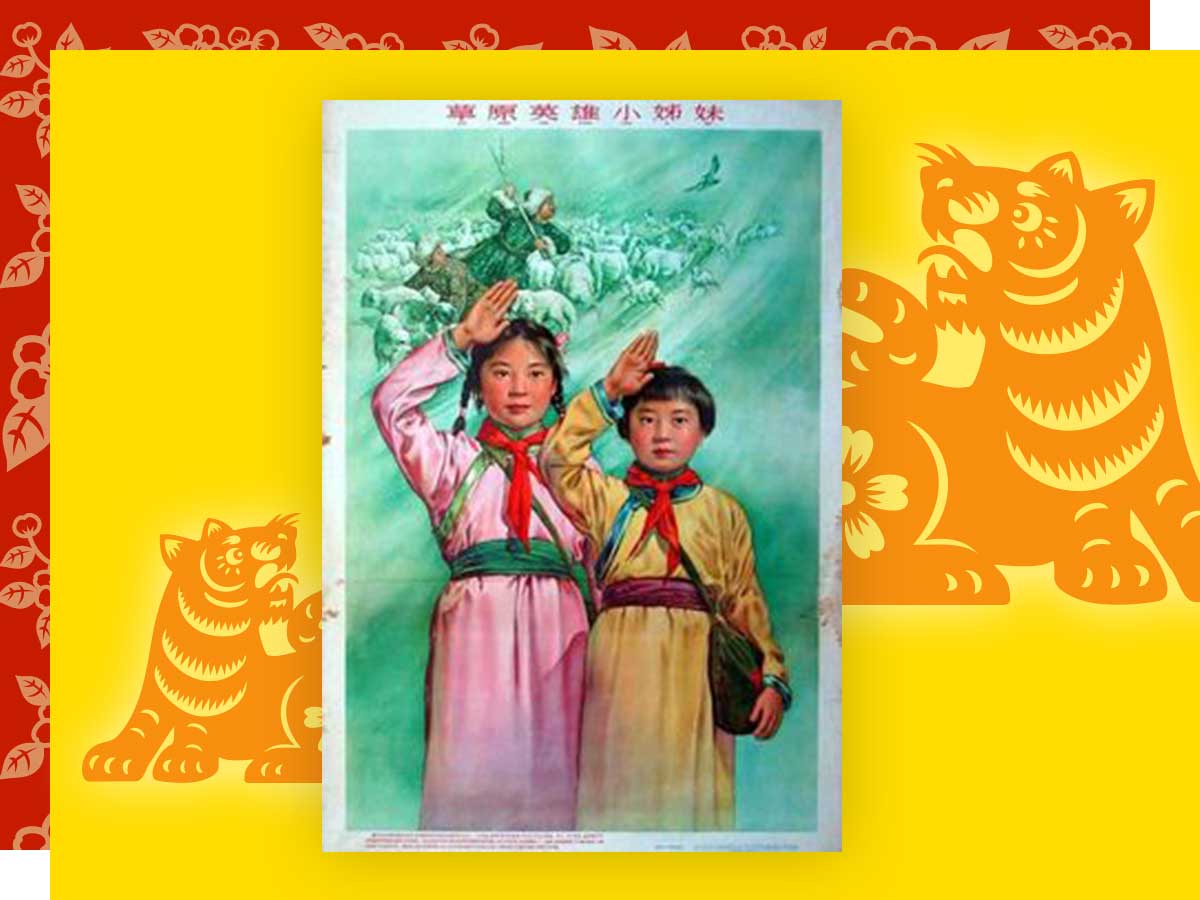
A classical Lunar New Year poster from Dr. Gao’s childhood. It depicts the story of two sisters who lived close to Gao’s village in Inner Mongolia who struggled through a snowstorm to save the collective's lambs.
Is there a favorite dish or food item that you look forward to each year?
As a northern Chinese, the food that I identify most with the Lunar New Year is of course jiaozi (dumpling), symbolizing harmony and perfection. In my hometown in Inner Mongolia, the real deal jiaozi has to be made with locally produced lamb and yellow carrots. They are not available anywhere else.
What's your favorite Lunar New Year tradition?
My favorite Lunar New Year tradition evolved over time. When I was a child, new clothes and fine food, which were rare during the rest of the year, were what the holiday was about. Now that I’m older, reuniting with family and the holiday atmosphere in the community have become the most meaningful part.
In Arise, Africa! Roar, China!: Black and Chinese Citizens of the World in the Twentieth Century (external link) (University of North Carolina Press; December, 2021) Dr. Gao Yunxiang unpacks the close relationships between a trio of the most famous twentieth-century African Americans, W. E. B. Du Bois, Paul Robeson, and Langston Hughes, and their little–known Chinese allies, journalist, musician, and Christian activist Liu Liangmo and Sino-Caribbean dancer-choreographer Sylvia Si-lan Chen.
